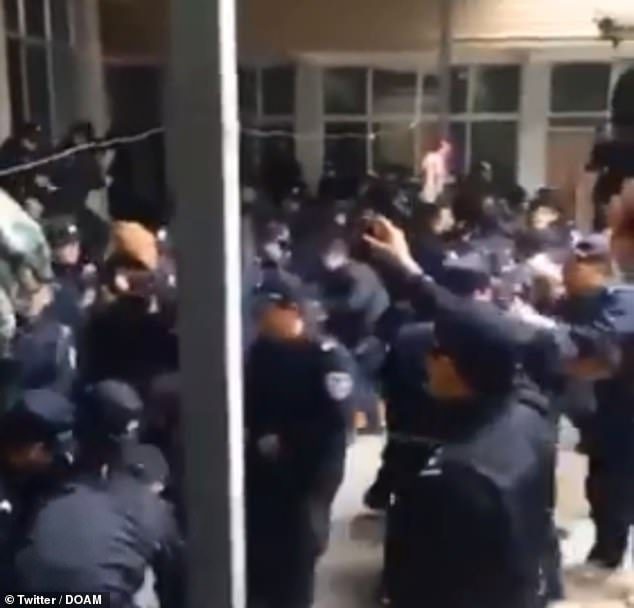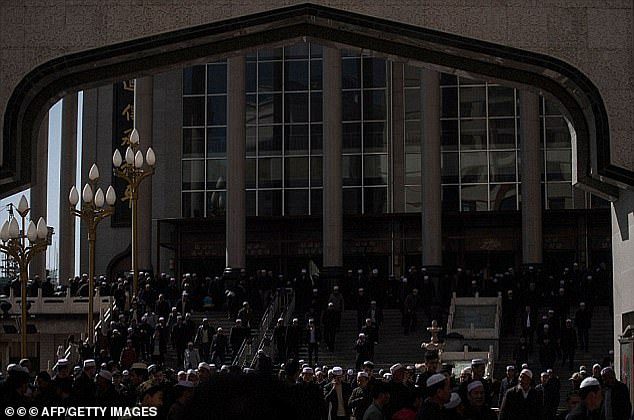Chinese officials have shut down three mosques for conducting ‘illegal religious education‘ amid an intensifying crackdown on religious activities in the country.
The mosques, located in Weishan county in south-west China’s Yunnan province, were raided by more than 100 police officers on Saturday, according to reports.
Videos of the raid were released on Twitter by independent organization Documenting Oppression Against Muslims (DOAM), which purportedly show Hui Muslim worshippers struggling with uniformed police officers as they resisted the shutdown of the mosques.


Another clip shows policemen dragging and shoving worshippers away from a mosque entrance. Sources told BuzzFeed News that around 40 to 50 people were arrested, but local police refused to confirm whether there were any arrests, according to South China Morning Post.
The raid in the villages of Huihuideng, Sanjia,
‘The mosques were illegally established and conducted illegal religious education in violation of China’s Regulation on Religious Affairs,’ the statement said, adding that the decision to raid the three mosques came after the government’s outreach programmes failed to deter such ‘illegal religious activities’.
A source in Yunnan told BuzzFeed News that the mosques had been trying to register their establishments with the authorities for more than a decade, but their applications had been repeatedly denied. repeatedly denied.


The shutdown of the mosques comes as faith groups that were largely tolerated in the past have seen their freedoms shrink as the government seeks to ‘Sinicise’ religions by making the faithful
Islamic crescents and domes have been stripped from mosques, Christian churches have been shut down and Bibles seized, and Tibetan children have been moved from Buddhist temples to schools. All religious institutes are now required to fly the national flag.
In the far west region of Xinjiang, following sporadic violent attacks by radical Muslim separatists, hundreds of thousands of members of the Uighur and Kazakh Muslim minorities have been arbitrarily detained in indoctrination camps where they are forced to denounce Islam and profess loyalty to the party.
Compared to those ethnic groups, the Hui are culturally much closer to China’s Han majority, similar in appearance and speaking a variation of the mainstream Mandarin language. It is estimated that 700,000 Chinese Hui Muslims live in Yunnan province.


But recently, reports said authorities had shut down Hui religious schools and Arabic classes and barred children from participating in Muslim activities.
In August, Chinese authorities were forced to delay the demolition of the newly built Weizhou Grand Mosque in Ningxia Hui autonomous region after hundreds of Hui Muslims turned out to protest.
Construction of the mosque was just completed last year cost one million yuan (£115,000), which was entirely paid by local Hui residents, according to sources. Officials announced that the mosque would be ‘forcibly demolished’ as it had not been granted the necessary planning and construction permits.
In China, mosques and other religious establishments must be registered with the government before they can operate legally. Each province has its own religious associations, which fall under the control of a local ethnic and religious affairs bureau.
If you know someone who might like this, please click “Share!”


